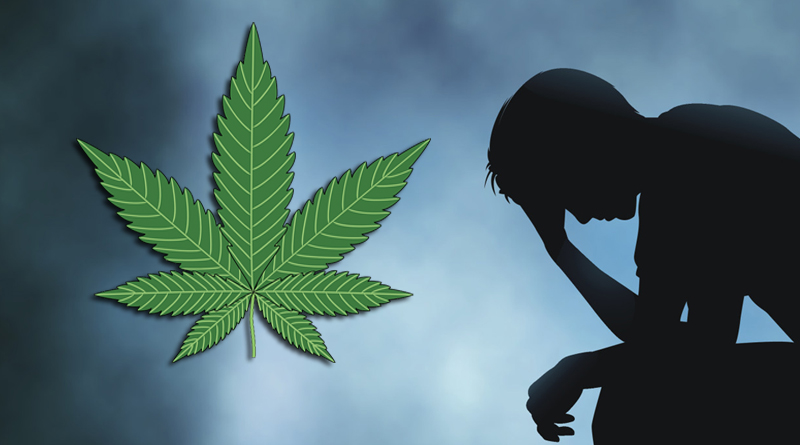Study: People with depression use more cannabis and don’t consider it to be harmful
A study exploring cannabis for depression was recently published in the journal Addiction. In order to understand the link between the use of cannabis among depressed and non-depressed people, data was gleaned from 728,691 individuals aged 12 years and above.
What researchers discovered from the self-reported data was that consumption of cannabis increased by almost double among individuals who suffer from depression, as opposed to those who did not have a mental health disorder. Interestingly, both groups had a different perception of the drug.
“Perception of great risk associated with regular cannabis use was significantly lower among those with depression in 2017, compared with those without depression, and from 2005 to 2017, the perception of risk declined more rapidly among those with depression,” said author of the study, Renee Goodwin, who also assumes the role of professor at Columbia University and The City University of New York.
“At the same time, the rate of increase in cannabis use has increased more rapidly among those with depression,” Goodwin added.
Almost a third of study subjects with depression likely to cannabis consumption
Approximately 38.6 percent of all subjects who participated in the study reported using cannabis within the last month. This group of consumers had no previous doubts before consuming cannabis, which they deemed to be a safe and risk-free substance. On the other hand, 1.6 percent of study subjects with depression considered the plant to be a health risk.
Cannabis use was common among depressed individuals aged 18-25; 29.7 percent (nearly one-third) used it over the past 30 days. As the study was drawing to a close in 2017, 18.7 percent of depressed study subjects reported using cannabis in the past month. In comparison, 8.7 percent of study subjects without depression consumed cannabis.
The researchers who carried out this cannabis study concluded that 6.7 percent of people with depression use cannabis on a daily basis, as opposed to the 2.7 percent of consumers who did not suffer from depression.
Research into the effects of cannabis for depression is limited
Based on the outcome of this study on cannabis for depression, depressed individuals seem to hold a fairly positive opinion on cannabis consumption. However, research into the benefits of cannabis for depression is limited. New efforts must be undertaken with government approval in order to fully understand what therapeutic powers the green plant may possess.
Nonetheless, the naturally-occurring compounds found in the cannabis plant – A.K.A. ‘cannabinoids’ – have been proven to work as a supporting aid for the body’s endocannabinoid receptors. Receptors are scattered around the body’s endocannabinoid system (ECS), which is responsible for restoring healthy cellular homeostasis in the body.








